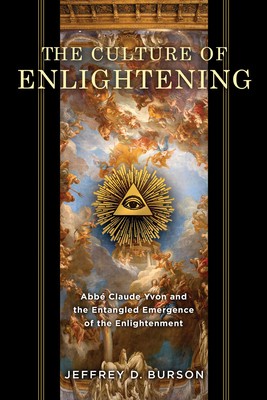
- We will send in 10–14 business days.
- Author: Jeffrey D Burson
- Publisher: University of Notre Dame Press
- ISBN-10: 0268105413
- ISBN-13: 9780268105419
- Format: 15.2 x 22.9 x 3.3 cm, hardcover
- Language: English
- SAVE -10% with code: EXTRA
Reviews
Description
Recent scholarly and popular attempts to define the Enlightenment, account for its diversity, and evaluate its historical significance suffer from a surprising lack of consensus at a time when the social and political challenges of today cry out for a more comprehensive and serviceable understanding of its importance. This book argues that regnant notions of the Enlightenment, the Radical Enlightenment, and the multitude of regional and religious enlightenments proposed by scholars all share an entangled intellectual genealogy rooted in a broader revolutionary "culture of enlightening" that took shape over the long-arc of intellectual history from the waning of the sixteenth-century Reformations to the dawn of the Atlantic Revolutionary era. Generated in competition for a changing readership and forged in dialog and conflict, dynamic and diverse notions of what it meant to be enlightened constituted a broader culture of enlightening from which the more familiar strains of the Enlightenment emerged, often ironically and accidentally, from originally religious impulses and theological questioning.
By adapting, for the first time, methodological insights from the scholarship of historical entanglement (l'histoire croisée) to the study of the Enlightenment, this book provides a new interpretation of the European republic of letters from the late 1600s through the 1700s by focusing on the lived experience of the long-neglected Catholic theologian, historian, and contributor to Diderot's Encyclopédie, Abbé Claude Yvon. The ambivalent historical memory of Yvon, as well as the eclectic and global array of his sources and endeavors, Burson argues, can serve as a gauge for evaluating historical transformations in the surprisingly diverse ways in which eighteenth-century individuals spoke about enlightening human reason, religion, and society. Ultimately, Burson provocatively claims that even the most radical fruits of the Enlightenment can be understood as the unintended offspring of a revolution in theology and the cultural history of religious experience.
EXTRA 10 % discount with code: EXTRA
The promotion ends in 18d.05:49:40
The discount code is valid when purchasing from 10 €. Discounts do not stack.
- Author: Jeffrey D Burson
- Publisher: University of Notre Dame Press
- ISBN-10: 0268105413
- ISBN-13: 9780268105419
- Format: 15.2 x 22.9 x 3.3 cm, hardcover
- Language: English English
Recent scholarly and popular attempts to define the Enlightenment, account for its diversity, and evaluate its historical significance suffer from a surprising lack of consensus at a time when the social and political challenges of today cry out for a more comprehensive and serviceable understanding of its importance. This book argues that regnant notions of the Enlightenment, the Radical Enlightenment, and the multitude of regional and religious enlightenments proposed by scholars all share an entangled intellectual genealogy rooted in a broader revolutionary "culture of enlightening" that took shape over the long-arc of intellectual history from the waning of the sixteenth-century Reformations to the dawn of the Atlantic Revolutionary era. Generated in competition for a changing readership and forged in dialog and conflict, dynamic and diverse notions of what it meant to be enlightened constituted a broader culture of enlightening from which the more familiar strains of the Enlightenment emerged, often ironically and accidentally, from originally religious impulses and theological questioning.
By adapting, for the first time, methodological insights from the scholarship of historical entanglement (l'histoire croisée) to the study of the Enlightenment, this book provides a new interpretation of the European republic of letters from the late 1600s through the 1700s by focusing on the lived experience of the long-neglected Catholic theologian, historian, and contributor to Diderot's Encyclopédie, Abbé Claude Yvon. The ambivalent historical memory of Yvon, as well as the eclectic and global array of his sources and endeavors, Burson argues, can serve as a gauge for evaluating historical transformations in the surprisingly diverse ways in which eighteenth-century individuals spoke about enlightening human reason, religion, and society. Ultimately, Burson provocatively claims that even the most radical fruits of the Enlightenment can be understood as the unintended offspring of a revolution in theology and the cultural history of religious experience.


Reviews